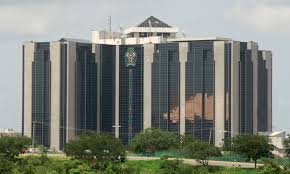The recent increase of the Monetary policy rates (MPR) to 24 percent by the Central Bank of Nigeria ( CBN), has been described as counter productive and injurious to the real sector of the economy.
A group of analysts who featured on Gist Nigeria, a programme of Channels Television and British Broadcasting Corporation (BBC), said the government should have allowed businesses to stabilise from the hike in energy costs. The programme focused on the likely impact of new CBN monetary policies on the economy.
President of the Nigerian Association of Small and Medium Enterprise (NASME), Abdulrasheed Yerima said the new interest rates policy will negatively affect investment in the small and medium enterprise (SME) ecosystem especially startups who are trying to start new businesses in MSME.
According to him, “It is also going to affect expansion negatively. Government should have waited for us to adjust to this high cost of energy and high cost of transportation.
“Yes the naira is firming up, but they should have allowed us some time for the naira to firm up because some of us import our raw materials from overseas.
“So we had expected government to allow the system to stabilise before any increase in interest rates.”
Also speaking, Paul Alaje, an economist, said the hike in interest rates has made the cost of borrowing high for now. He said even those who borrowed before are now receiving letters from their banks because of the review in interest rates. “So it is definitely going to have impact and negative impact at that, on businesses,” he said. “SMEs borrow money too and they will also face the same challenge.”
While agreeing that there is need to raise the interest rates, Alaje said raising it by 600 basis points in a space of five weeks is just too much. “The cost of the increase is more than the benefits of the increase,” he said. “When you are combating inflation and you increase the interest rate so high, it will discourage investment and when you discourage investment you bring down the GDP. Yes of course the forex will grow because foreign investors will come in with their portfolio investments, but whether they will invest in the real sector, the answer is no.”
Speaking on recapitalisation of banks, he said it is a welcome development, noting that it is very important because according to him, not all the banks are solid. “Maybe the top 10 banks may be OK, but we cannot say the same thing of other banks, they need to recapitalise,” he said.
In her contribution, Ola Oladele, a Financial markets analyst, while supporting the increase in interest rates as a short term measure to stabilise the economy, noted that there is also need to work on the ease of doing business and fixing other identified challenges that will balance out the increase in interest rates.
According to her, “When you are taking up interest rates the idea is to create a better opportunity for investment. For example you can see bonds at 20 percent, so if you are investing in a 10 years bond at 20 percent, that is a good investment. What the CBN is trying to do is to attract people not to leave money idle so that there is less cash chasing goods and it will slow down inflation.
“Yes there are structural issues, there are long term development issues that need to be resolved, but in the short term this is just to stabilise the economy and take away the sense of panic.
“However, If we are taking up interest rates, we should step up ease of doing business or we are fixing other challenges impede smooth business operations to balance out the increase in interest rates. There is no doubt about it, the increase will definitely slow down the economy.”
She also agrees that the recapitalisation policy of the CBN is the right thing to do because according to her, “When the central bank said it has done stress test and it feels the banks need to be recapitalised, it means that what CBN wants is that when one brings his cash and puts it in the bank, he can go to bed knowing his money is safe.”
Chairman of Bank Directors of Nigeria, Mr. Mustapha Chike Obi, said the directors were not carried along in the decision for banks to raise more capital.
According to him, “The issue of capital raising is not an executive issue to be dealt with by the Managing directors, it has to go to the board, it has to go to the annual general meeting (AGM), it is the directors’ responsibility to raise capital and we were not consulted.”
He said banks that are doing minimal amount of business internationally should not be required to have the same amount of capital with those that are doing a lot of business internationally.
“I would have preferred a situation where if you do 10 percent of your business internationally, then you need additional 10 percent of capital, if you are doing 50 percent of your business internationally then you need additional 50 percent capital.
“Asking banks to raise N4 trillion in the next two years may be difficult, the banking business will shrink in those couple of years,” he said.


